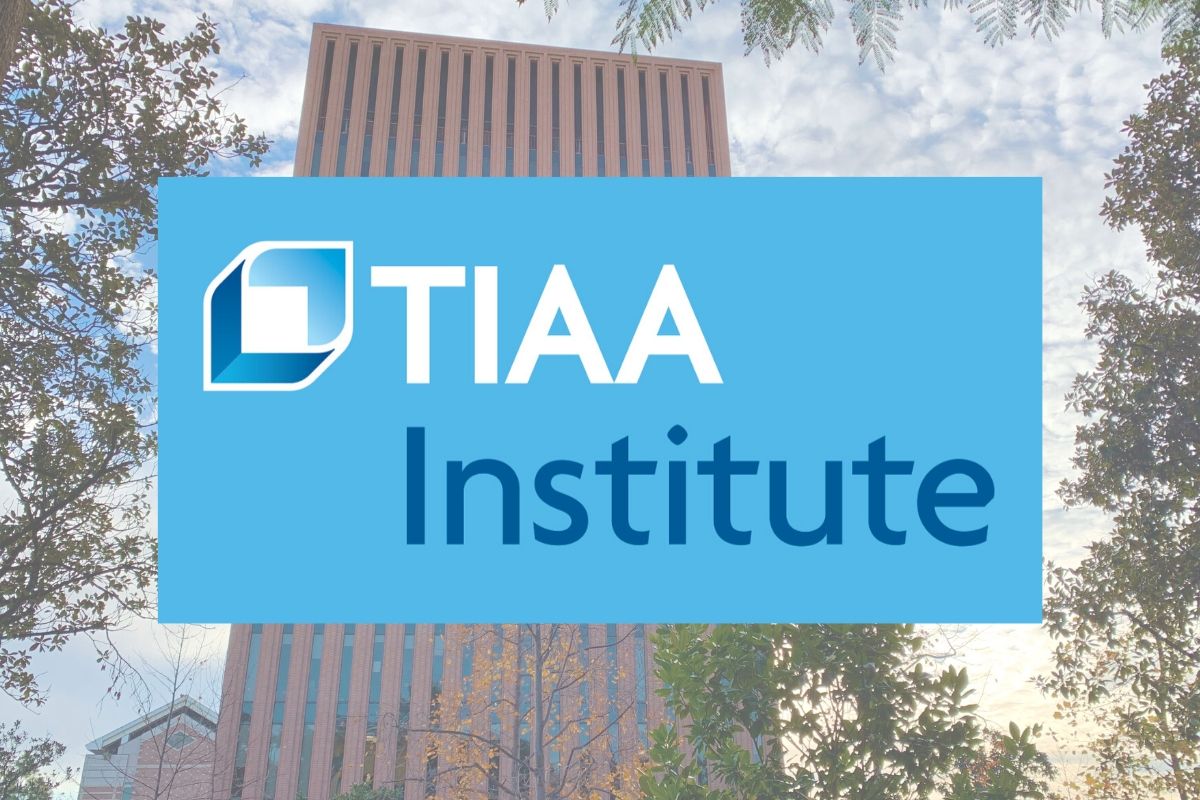
TIAA Institute Awards Pullias Center Grant to Examine Award-Winning Support for Non-Tenure-Track Faculty
The TIAA Institute has awarded the Pullias Center for Higher Education a one-year $50,000 grant through the end of 2020 to study and document cases of institutions that have made significant changes in policies, programs, and practices to better support non-tenure track faculty (NTTF), which includes contingent and adjunct faculty. Adrianna Kezar, professor at the Rossier School of Education, director of the Pullias Center for Higher Education, and leading proponent for improving conditions for NTTF, is the primary investigator for this research.
The cases that will be selected will be drawn from the institutions that have won the Delphi Award, which each year presents a $15,000 cash award to each of two applicants who have worked to support non-tenure-track faculty in pursuing strategic priorities such as student learning and community engagement.
“It is important to take a closer look at examples of innovative support for NTTF, who make up more than 70 percent of instructional faculty in American higher education,” notes Dr. Kezar. “This generous grant from TIAA Institute will allow us to study and document exemplary cases that really moved the needle for non-tenure-track faculty so that they can serve as models for other institutions. The grant focuses on understanding the process campuses undergo to create such changes and how they are designed in order to support materials for a national Institute that the Center will be running with the Association of American Colleges and Universities (AACU) starting up in June 2021.”
The study includes interviews with key faculty, staff, and administrators involved in developing and implementing the policy or program that earned a Delphi Award. The Delphi Project in general, and this study in particular, is motivated by well-documented research that many adjunct and contingent faculty face working conditions that make it difficult for them to perform their roles adequately. Studies demonstrate that NTTF faculty working conditions are marginal: limited or no orientation, professional development, or mentoring; limited or no feedback and evaluation; limited or no input to department decisions or institutional governance; limited or no clear guidelines about their work and role; little or no office or work space, secretarial or administrative support, computer or phone, support services (copying or media), and the list goes on. Research previously conducted by Kezar in 2013 demonstrates how the accumulation of poor working conditions and lack of any supportive infrastructure has led to a phenomenon called “lack of opportunity to perform,” essentially creating an environment in which contingent faculty are barred from educating to their potential and frequently experience burnout from overcompensating for their poor working conditions.
“We want to continue to lift up examples of unique and effective approaches to support non-tenure-track-faculty,” states Dr. Kezar. “The Pullias Center for Higher Education can learn a great deal by continuing to examine a growing pool of great NTTF-supporting practices while also observing what these programs have in common as well as what makes them effective for each university’s unique environment.”
Learn more about the Delphi Project and the Delphi Award on our site. The application period for the 2020 Delphi Award is currently open and ends July 17, 2020.